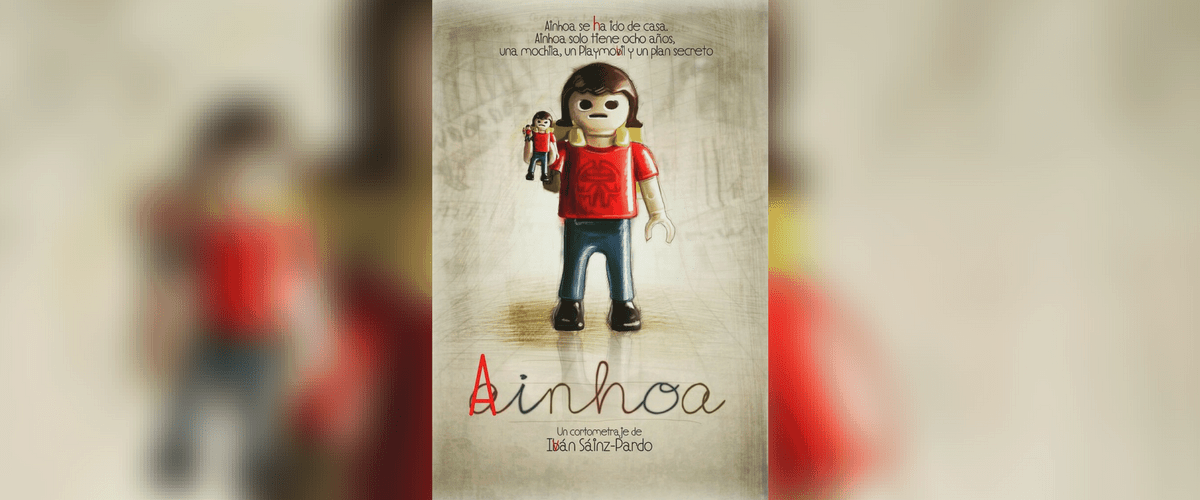
Who said that children don’t understand the problems of adults? Despite the innocence that protects them from total (sometimes painful, unbearable) contact with the demands of reality, children’s sensitivity is far from being completely disconnected from the coordinates of social contexts. Avoiding adhering to a brutal realism strictly focused on a cruel miserabilism, lacking ornaments to compensate for a minimalist visual styling, ‘AINHOA‘ is a colourful, seemingly bright journey through the soul of a little girl who wants to change the unhappy destiny of her parents facing some extremely delicate social issues. In spite of the rather political premise that seems to be in a totally incompatible rapport with the way a child’s eyes perceive the adult world, Iván Sáinz-Pardo manages to create both a compelling metaphor about childhood deprived by the emotional comfort of the family, but also a kind of parable about the power of fantasy and the cathartic function of the game through which the mental horizons of a little girl succeed to comprehend and rethink in a fancy key the whole malice of the outside world. Somehow, the director of this short film accomplishes to combine into his artistic product the hallucinatory mechanism of a film like ‘Tideland’ (directed by Terry Gilliam), where the existential periplus of the little protagonist is perceived as a continuous game by which the valences of external social contexts acquire a different meaning.
After silently witnessing the desperate moments of her parents who are about to be kicked out of their own house, Ainhoa tries to find someone responsible for all this, someone whose elimination could restore the family harmony. Against the backdrop of the Spanish Crisis, which marked an extremely bad historical moment for many people who eventually died in misery, the little protagonist believes she found, while watching TV news, the guilty person for the misfortune of her parents. Thus, she leaves home looking for the unknown man to restore justice to the world, also trying to alleviate the suffering of those around her, proving that beyond the ugliness of this world haunted by the demon of politics and economy, humanity and altruism continue to survive.
Without being a short focused on the discursive dimension of the storyline, Iván Sáinz-Pardo’s project excels through an impeccable visual grammar that relies, first of all, on the suggestive power of the image. Thus, the director manages to create, through two complementary narrative and temporal plans, an expressive protagonist who doesn’t need words to truly communicate the multitude of feelings that govern her reality. This allusive technique by which the creator of this short film creates a complex and profound picture of a child’s inner struggle is not just an effect of the adjacent components of this experiment’s internal structure (the playful, slightly carnival music, similar to Yann Tiersen’s from ‘Amélie’ and the harmonious chromatic of the adult universe filtered through the eyes of the protagonist), but also a consequence of the extraordinary chemistry the little actress creates with the more or less passing characters that mark her odyssey. ‘AINHOA’ is a smart, attractive and contrasting cinematic product that, although it portrays the trauma of a child who is forced to grow up into a world lacking human warmth, can touch and amuse any kind of spectator.
For the sensitivity with which it surprises the inner mechanism of a child’s soul, for the intelligence with which the director depicts the decisive role of game and social conventions in the mental shaping of the individual, but also for the structural homogeneity between storyline, image and sound, ‘AINHOA’ was awarded with the Film of the Month distinction in the February 2018 edition of TMFF.
TMFF RATING:











